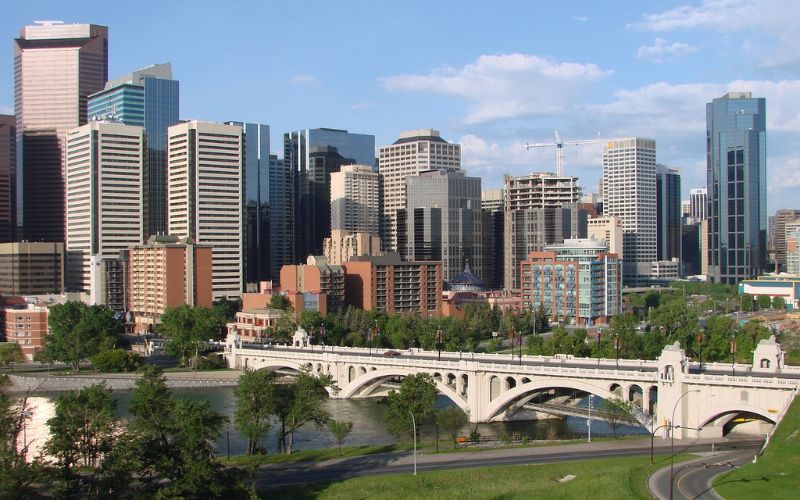Traveling or relocating to a new city or country is quite exciting. However, one thing everyone needs to know before planning to relocate or travel is the cost of living in that particular place. The cost of living in Canada would depend on several factors. If you are relocating from a West European country, you would find Canada cheaper than your own country. However, if you are shifting from some other place like Asia or Africa, you would find Canadian life to be pricey.
The major factors that would influence your cost of living and life in Canada are your location and lifestyle. If you do not have a job in Canada while visiting or relocating to the place, you would have to show your financial status during the Canada tourist visa application process. This is to ensure that you have enough money to survive in the city during your stay or till you find a job.
One of the important factors that would determine your cost of living in Canada is the city you choose to stay in. Although Toronto is the capital of Canada, the cost of living in Vancouver is higher compared to the capital. Moreover, the cost of living in cities like Montreal, Calgary, Edmonton, etc. also varies. Apart from this, your lifestyle also plays a major role when it comes to deciding your monthly expenses. If you are planning to shift to Canada anytime in the near future, we would help you to get an idea about the expenses that await you in this amazing country in the North American continent.
Breaking Down the Cost of Living in Canada
1. Housing

When it comes to settling in a new place, the first thing that would come to your mind is housing. Of course, you need a roof over your head. Your choice of location would definitely depend on the location of your office or maybe college or university. If you choose a house in the main city, it would be more expensive than an apartment, while a home in a smaller town would be cheaper than getting one in the city. However, in the latter case, you would have to spend time commuting from your home to the city every day for work.
Renting a one- or two- bedroom apartment inCanada can be anywhere between 850 and 1800 Canadian dollars, depending on the city you are in. However, if you choose to rent a place away from the city, you can rent a similar apartment at 750 to 1000 Canadian dollars. However, if you are relocating with your entire family, you would need a bigger house. You can get a three-bedroom apartment in the city for 1700 to 2500 Canadian dollars. On the other hand, a similar apartment outside the city would be for 1200 to 1800 Canadian dollars. However, the exact price would entirely depend on the city you choose to live in. Moreover, the cost would also differ depending on whether the place is furnished or unfurnished.
2. Food and Essentials

Food and clothing are essentials that come after housing requirements. The cost of food in Canada is cheaper than Western European countries. However, if you are not from that part of the world, you may find Canada to be expensive when it comes to food. Food and other household essentials would cost you around 300 to 500 Canadian dollars every month. However, if you eat out regularly, the prices would definitely be higher than this. Inexpensive meals average $15, while a mid-range restaurant for two can cost $65. Plan your dining budget accordingly. While alcohol is available at 5-6 dollars, cigarettes are expensive as heavy taxes are levied on them.
Apart from the food expenses, you also have to know about the expenses of the basic utilities like heating, electricity, water, garbage collection, etc. All these expenses would come around 140 dollars per month. When it comes to clothing, branded clothes would cost you more. However, you can choose to buy cheaper clothes imported from China. Nevertheless, Canada’s winter is severe, leading to increased spending on winter attire.
3. Education

Education in Canada’s public schools is free for citizens and permanent residents. The quality of education is quite high in public schools. No resident visa or work permit in Canada? Apply for a study permit for your children, but be prepared for high fees comparable to private schools. Plan accordingly for these costs. In terms of higher education, fees at the universities of Canada are comparatively cheaper.
For a foreign student with an undergraduate degree, the average year costs around 28,000 to 30,000 dollars. Not forgetting the cost of books which ranges anywhere between 100 to 150 dollars per semester.
4. Health

When it comes to health expenses, all citizens as well as permanent residents are entitled to health insurance. Expats can get public health insurance; however, this may take a little time. In the meantime, consider private health insurance covering prescription drugs, private hospital rooms, dental, prescription glasses, and ambulance services. The private health insurance lasts for three months.
To put it simply, though you may not pay directly for medical services in Canada, a substantial amount of money for healthcare is paid through taxes. According to recent studies, a family with two adults and two children with an average household income of 156,086 dollars will pay approximately 15,847 dollars for public healthcare.
If you are travelling to Canada for leisure, business, or other purposes, check for health benefits that come along with travelling which will help you in planning your trip to Canada.
In case you are travelling to Canada for a splendid vacation, you can check out a Canada travel on budget guide for in-depth details on your travel.